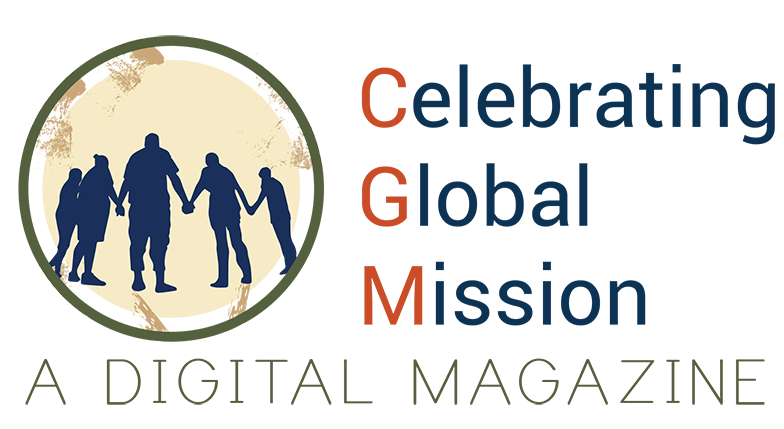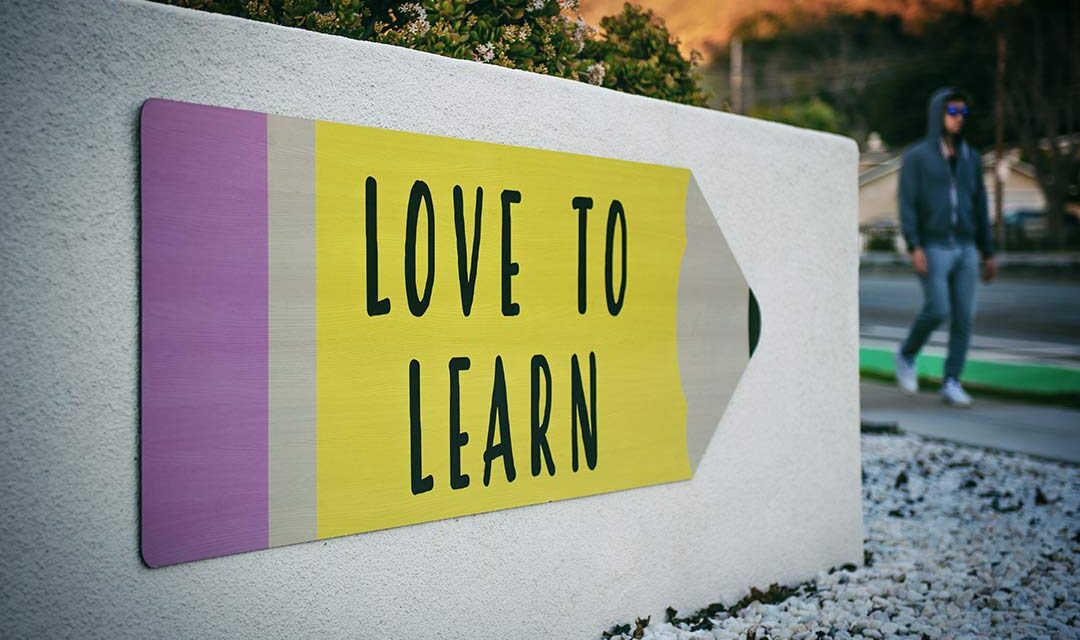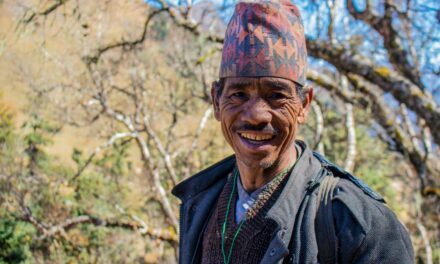“Please be patient, God is not finished with me yet.”
There were buttons, bumper stickers, posters, cards, and more just about everywhere you looked when I was in high school in the late 1970s. To my adolescent mind, I found this phrase something like an excuse. Now, more than 40 years later, I think it is quite accurate.
I have had three distinct phases of my life: early learning, middle learning, and still learning. Let me explain.

Early Learning
Obviously, all of us are in a learning phase initially. I have an 18-month-old son, Bless (in addition to three adult children, Megan, Marissa and Nathan), and I am fascinated with how fast Bless is learning. He is a sponge soaking up every visual and aural experience and imitating it. You cannot tell him not to learn. It is truly fascinating how God has made us curious from the beginning.
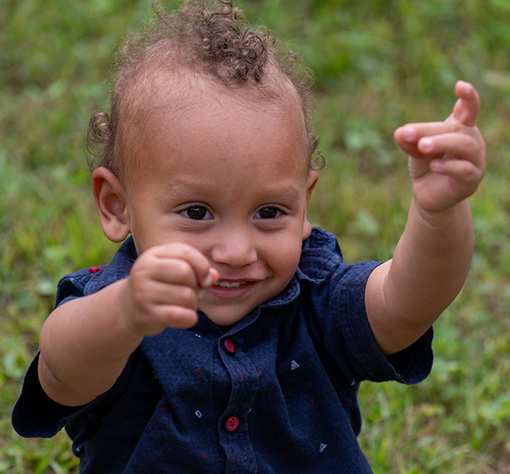
Bless Stubbs
My first stage of learning extended beyond high school graduation through two undergraduate and two Master’s degrees (all in music). While in this phase I met my wife, Carol, and we got married. This was definitely a learning phase!
Middle Learning
Middle learning included building family and career. For 19 years, I was Director of Music and Organist for First Lutheran Church in DeKalb, Illinois, just west of Chicago. The music program was small when I started. I encouraged the church leaders, telling them that investing in the music program would bring positive changes to the church and community.
I’m pleased to say they gradually agreed, and by the time I left in 2006 the music program was large and vibrant, including adult, youth and children’s choirs, multiple 5-octave handbell ensembles, brass, strings, a Fine Arts Series with ensembles from all over the world, an Organ Recital Series, summer Liturgical Dance and Music camps, annual major choral/orchestra presentations and children’s musicals, hosting hymn festivals, handbell festivals, conferences, and community events.
In addition, there were physical improvements including complete rebuilding of the 3-manual, 51-stop pipe organ, and an 8-stop pipe organ, installing new sound and lighting systems, and a building addition that included wonderful music facilities.
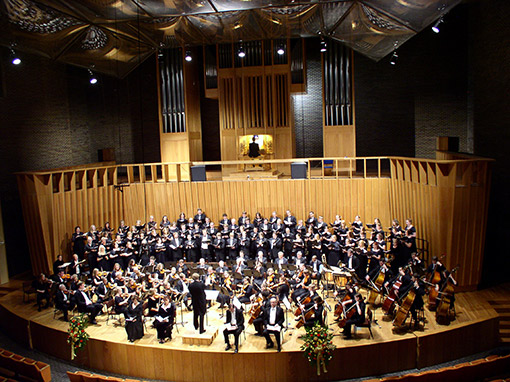
Randy at the organ, 2005 DeKalb performance
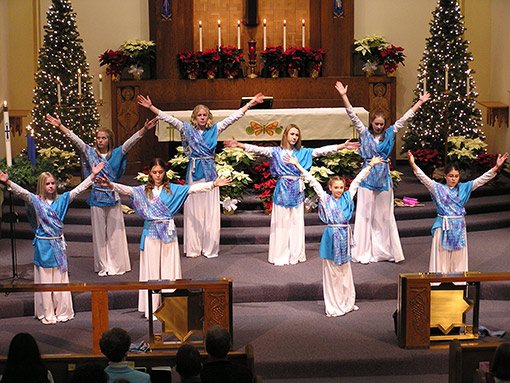
Liturgical Dance at First Lutheran Church, 2005
Also, my wife and I started a community children’s choir that involved 101 children. We attended festivals, commissioned new works, recorded, and more. With God’s guidance and hard work, we achieved all of our professional goals during this period in DeKalb.
We started our family and had three children, now all in their upper 20s. Our middle child, Marissa, was born with Down Syndrome. Our entire world changed. With much research, a strong network of supportive specialists and God’s help, we embarked on a huge learning adventure. It was abundantly clear that God was accompanying us on this unanticipated journey and we had a LOT of learning that we never expected.
In 2005, at a Sunday evening family devotion, the study guide posed a question: “If you didn’t have to worry about money, what is something that you would want to do as a family?” I don’t remember my children’s answers, or my wife’s answer, but I do vividly recall my answer that shocked everyone, including me.

Carol, Randy and Marissa (back), Megan and Nathan, 2002
I said, “If I didn’t have to worry about money, I would like to take some time and do a family mission trip.”
There was t-o-t-a-l silence from my stunned family. Sure, we had been wholly involved in church our entire lives, but this was something totally different.
Carol finally queried, “You, Mr. Type A personality that needs to be in control of everything, you want to go to a developing country where you have no control of anything?”
“Yes,” I said.
Still Learning
That night started us on our journey to the third (and current) phase, still learning. How God managed to move our family to Tanzania to serve as volunteers helping to start the new music degree programme at Tuaimni University Makumira is an amazing story for another time. Suffice it to say, God demonstrated clearly that this was the path we should pursue.
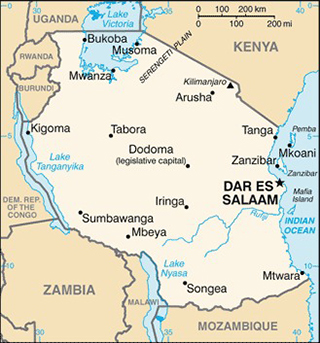
Map of Tanzania
One year later, August 2006, our family boarded a plane in Chicago to embark on an incredible adventure, that continues to this day. We stepped off the plane with new smells, new sounds, and completely exhausted children (ages 9, 10, and 12). We gathered our 5 carry-on pieces and 10 pieces of checked luggage, which included a full-size piano, a cello, a harp, a guitar, a violin, a box of music books, our favorite cast iron skillet, some sheets and clothes, and began a new life in Tanzania.
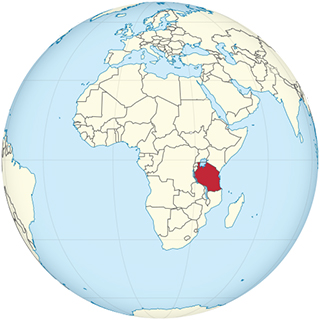
Tanzania – global view
EVERYTHING that first year serving as volunteers was a learning experience. I kept a blog the first year (actually the first 10 years) to help our supporters, family and friends get a glimpse into our adventures. Actually, it was a way for me to process the many new experiences coming to us every day. Through our new life in Tanzania, God showed us many beautiful and challenging things, taught us many lessons, and demonstrated His faithfulness through every circumstance. Within a few months, it was amply clear that every experience, challenge, and relationship we had living in the States, God had used to help us learn for this new life.
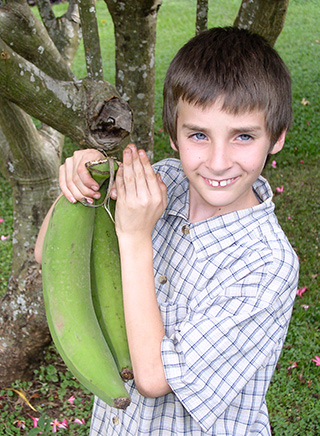
Nathan showing some BIG bananas
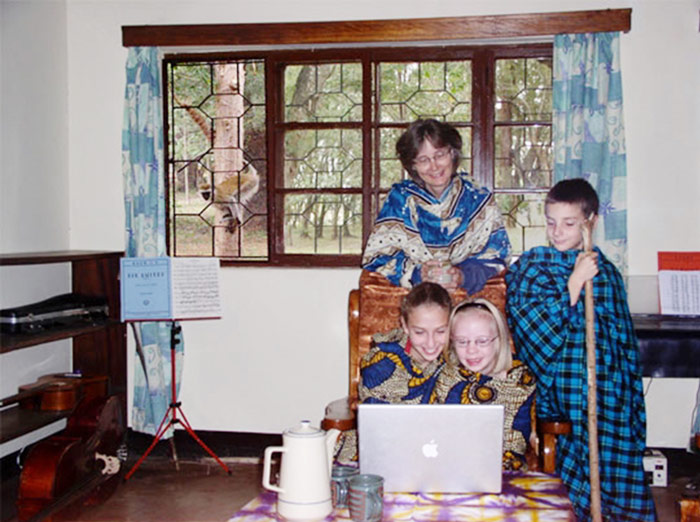
Homeschooling with monkey looking in the window
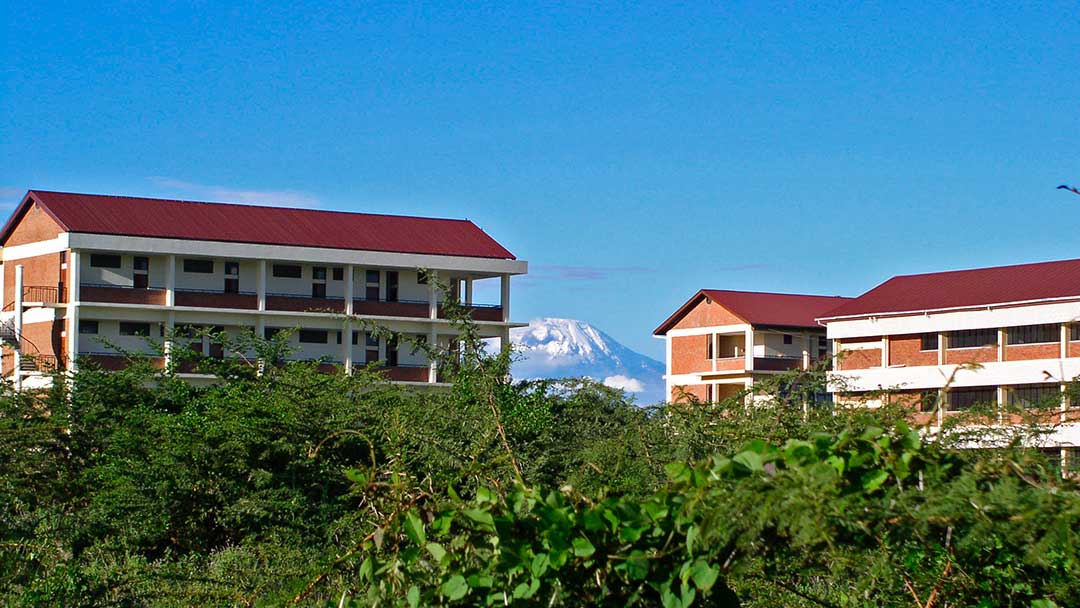
Tumaini University Majumira with Mt. Kilimanjaro in background, 2008
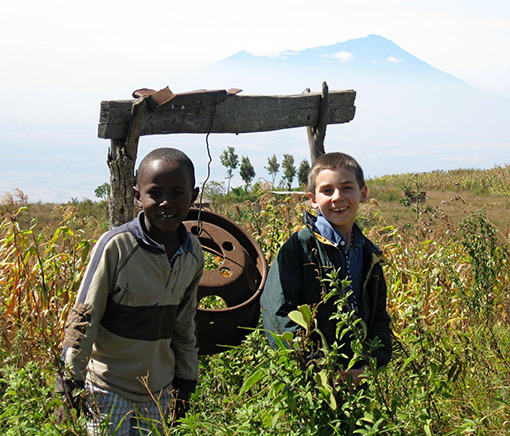
Nathan with Joel, son of our first graduate, Rev. Seth Sululu, with Mt. Meru in background, 2008
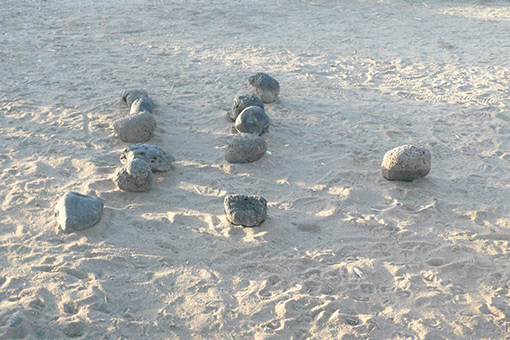
Church pews in the bush – these are for elders to sit on
When people ask me what is different about life in Tanzania, I quickly reply, “Everything!” Start with this: “Up is Down.” In the States you push a light switch up to turn it on. In Tanzania you push the light switch down to turn it on. We drive on the left side of the road, not the right. Drivers give the right away to giraffes, cows and goats, but not people. The list goes on and on. Many Americans say, “Oh, the light switches are wrong.” I quickly reply it is simply different than what you are used to. Here down is on, everyone knows that (except Americans).
This is one of the important points to learn when living in a different cultural setting. We are the guests and we cannot impose our cultural bias of right and wrong on others. This has many ramifications and applications far beyond light switches and driving.
Another important lesson we learned is to listen, listen, listen, and then only talk if someone specifically asks your opinion. This is very difficult for most of us as Americans. We have opinions about everything and we will gladly share our opinion with anyone who provides even the slightest opportunity, such as taking a breath while they are talking. Here the hierarchy of power and status is very real. Unless you are the oldest and most important person in the room, it is best to keep your mouth shut.
Discrimination is real. For those of us who have light-colored skin, it is sometimes difficult to understand in the U.S. However, living in Tanzania it is white skin that is rare, less than .02% of the population. Even being fluent in Swahili, I cannot get the same prices for food or other items as my Tanzanian colleagues. Complaining rarely yields results.
16 Years Later
Now, 16 years into the “still learning” phase, God has blessed our ministry and our family in many ways. The music programme started with four students, one textbook, one piano, and a few trumpets. Now we have graduates throughout the country making tangible differences on local and national levels. All of my teaching colleagues are my former students, now with Masters and even PhD degrees. Our music library has over 6,000 books, we have recording studios, instruments and beautiful facilities on 11.5 acres of land that we share with the Cultural Arts Centre (CAC), an outgrowth of the music department. God has truly blessed this ministry.
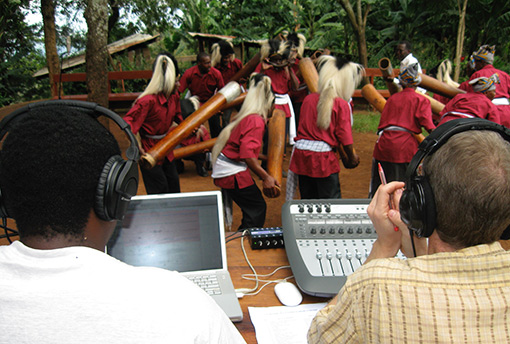
Field recording of Chagga music, 2010
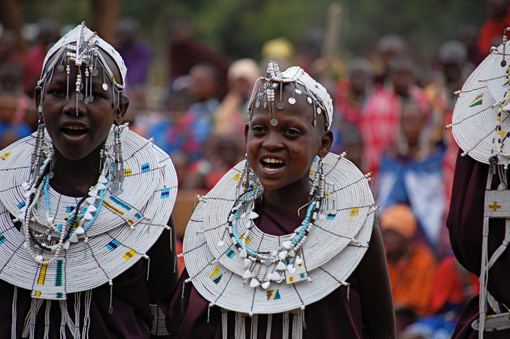
Maasai girls at Lutheran choir competition, 2010
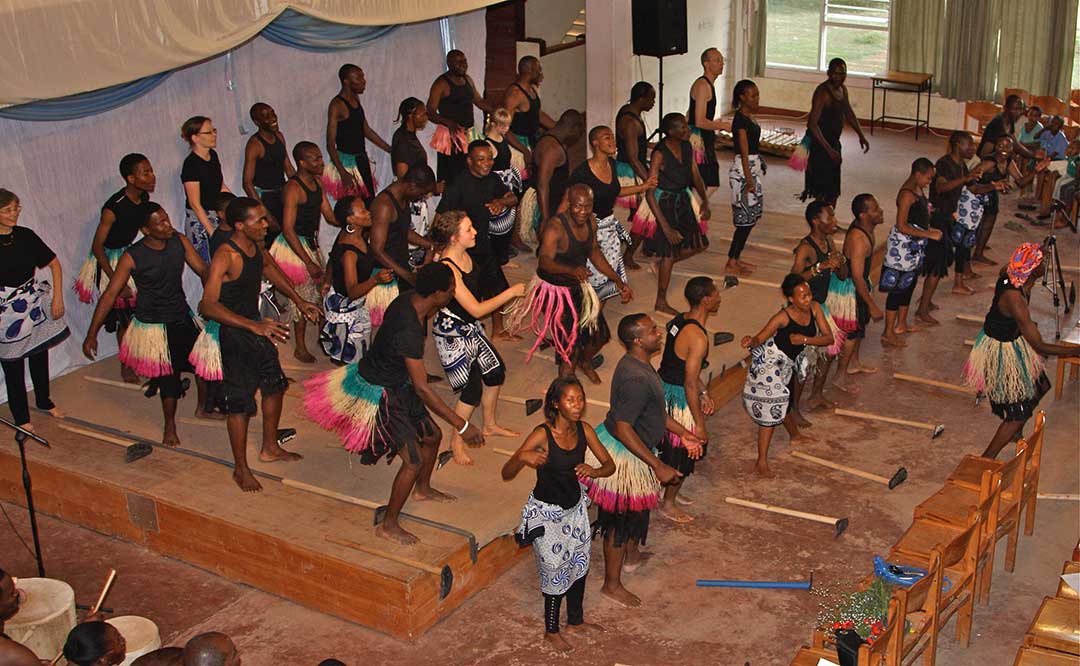
Music Department performance, 2012
My job officially is Programme Manager for the CAC and part-time music lecturer. I am engaged in Capacity Building and Evangelism, using music as a tool for development in the church and the community. We help train people, develop resources, and use culture as a tool for preservation and development. We also engage in Christian/Muslim relationship building.

CAC school outreach, 2016
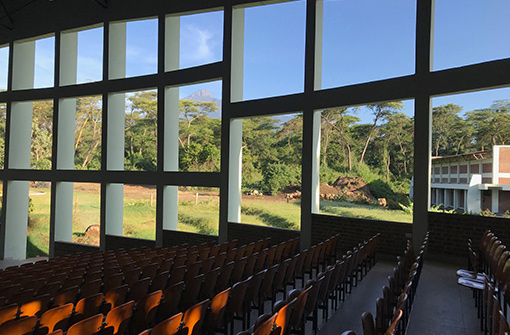
CAC Performance Hall with Mt. Meru in background, 2017
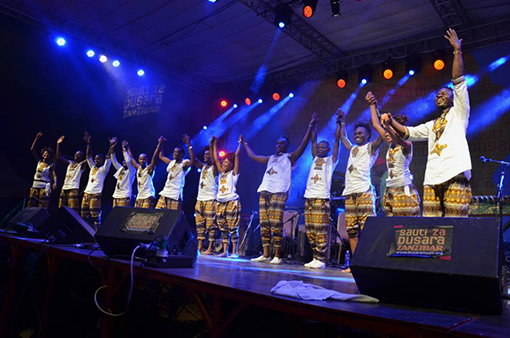
CAC at Sauti za Busara Festival in Zanzibar, 2018
Of course, not everything has been as we hoped. Challenges of money, power and resources are real.
A Tanzanian teen, who we raised for eight years, was raped and killed just 2 weeks before her 20th birthday.
At the same time my wife developed an aggressive leukemia. In Tanzania they say, “God needed her in heaven.” She passed away in early 2018 after a most challenging 18-month battle. (More stories for another day.)
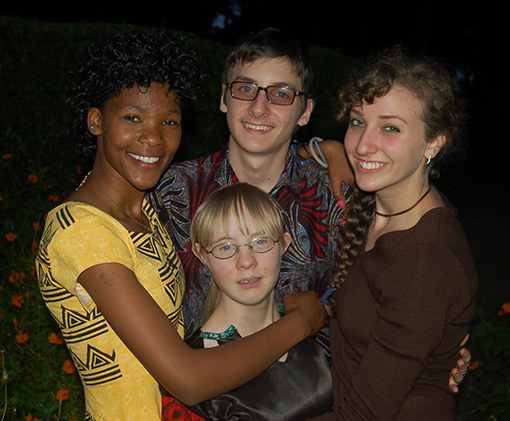
Juliana, Nathan and Megan, with Marissa in front, 2015
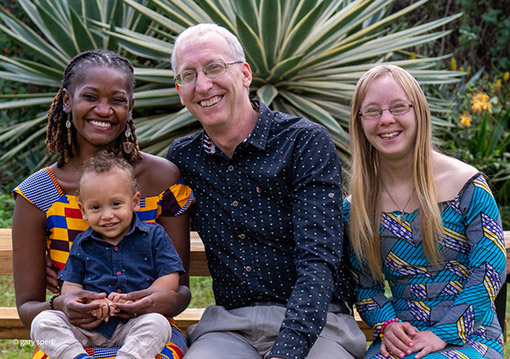
Faith holding Bless, Randy and Marissa Stubbs
Now I have married Faith, a Tanzanian, and we have a son together.
Marissa still lives with us.
Megan is also married to a Tanzanian, She has two beautiful girls and lives close to us.
Nathan is a computer programmer in the States.

Megan, Randy and Marissa at a 2023 gig
Practically every day God shows me I still have much to learn. I take comfort in the fact that God is not yet finished with me yet. My prayer is that I continue to be open to learning experiences. And I pray that for you also. Bwana asifiwe! (Praise the Lord!)
